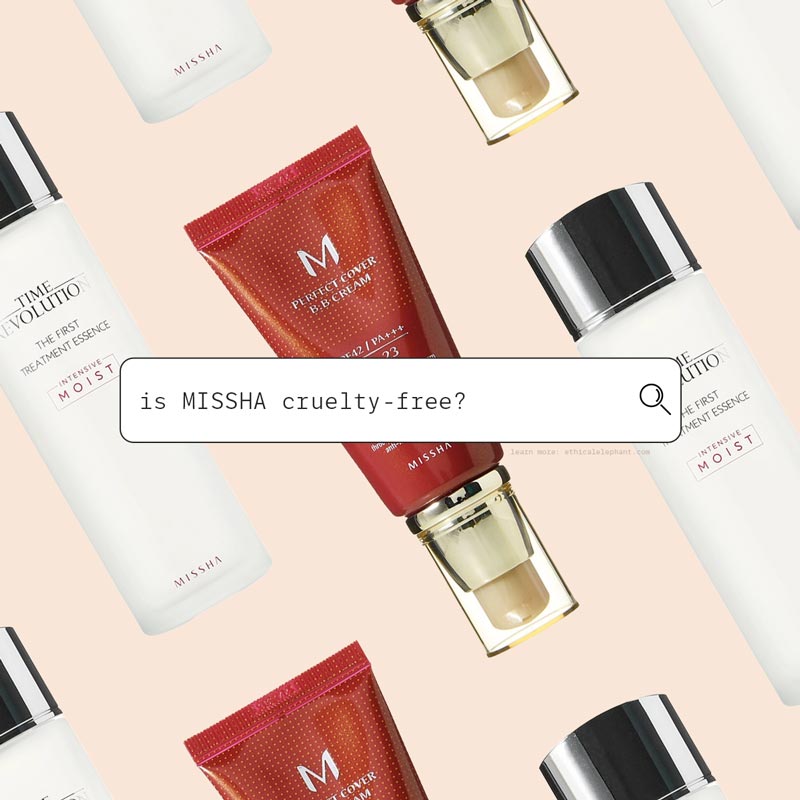In recent years, the beauty industry has witnessed a seismic shift towards ethical considerations, with consumers becoming increasingly cognizant of the ramifications of their purchases. This heightened awareness is particularly prominent within the realm of K-Beauty, where brands such as Missha have sparked curiosity and inquiry regarding their animal testing policies. As the demand for cruelty-free products escalates, it is imperative to delve into the practices of these brands, scrutinizing their commitments to animal welfare.
Missha, a renowned South Korean cosmetics brand, is celebrated both for its innovative formulations and its affordability. The brand caters to a fast-growing demographic of beauty aficionados who seek high-quality products without the exorbitant price tag. However, beneath the allure of their colorful packaging and diverse product offerings lies an essential question: Is Missha genuinely cruelty-free?
To address this inquiry, one must first understand the ethos behind animal testing within the beauty industry. Animal testing involves subjecting animals, often rabbits, guinea pigs, and mice, to experiments that can result in pain or even death, all to assess the safety and efficacy of cosmetic products. In the 21st century, many brands have adopted progressive stances against this practice. Moving away from animal testing not only reflects a commitment to ethical principles but also aligns with a growing societal expectation that all organisms, regardless of their utility to humans, deserve to be treated with dignity and respect.
As for Missha, the brand asserts its dedication to cruelty-free practices. They publicly proclaim that they do not test their products on animals, which is an essential tenet for consumers who prioritize ethical consumption. However, the veracity of these claims often invites skepticism. To gain a comprehensive understanding, one must consider the intricate web of regulations and standards that govern beauty brands, particularly with regards to animal testing in the countries where they operate.
The primary cultivation of Missha’s products occurs within South Korea, a nation that has made significant strides towards debunking the traditional paradigms surrounding animal testing. In 2018, the country enacted a law that prohibits animal testing in the development of conventional cosmetics. This legislation marks a pivotal shift, steering the industry towards compassion-driven practices and underscoring a collective societal rejection of animal cruelty.
However, despite such progressive advancements, there are caveats to consider. Missha, like many other K-Beauty brands, sells its products in international markets, including regions where animal testing remains a legal requirement, such as China. This duality presents a paradox; while the brand may showcase its cruelty-free aspirations, involvement in markets that mandate animal testing can obscure its ethical standing. In essence, this raises further questions about the authenticity of claims made by the brand.
To explore Missha’s cruelty-free status, it’s prudent to assess certifications and endorsements from independent organizations that advocate for animal rights. Milestones such as being recognized by PETA (People for the Ethical Treatment of Animals) or Cruelty-Free International can bolster a brand’s claims. As consumers delve deeper, they will find that Missha does not currently carry a cruelty-free certification from widely recognized animal rights organizations. The absence of such endorsements can provoke apprehension among conscientious consumers seeking every assurance of ethical practice.
Moreover, the ingredients utilized in Missha products merit consideration. The rise of synthetic alternatives has heralded a new era of formulations that forgo the need for animal testing. However, the procurement of ingredients can also carry ethical implications. Certain animal-derived components, such as carmine or lanolin, may still find their way into formulations, which could contradict the brand’s professed commitment to cruelty-free principles.
In investigating the brand’s offerings, it becomes apparent that Missha has become increasingly invested in cultivating vegan alternatives. Their “Vegan Line” presents options devoid of animal-derived ingredients, appealing to a growing demographic that adheres to both veganism and cruelty-free philosophies. This strategic pivot offers a glimmer of hope for those navigating the treacherous waters of the ethical beauty landscape.
Ultimately, discerning whether Missha is truly cruelty-free requires meticulous examination of their practices, supply chains, and ingredient sourcing. While the brand advocates for animal welfare and has benefitted from the positive momentum of legislation against animal testing in South Korea, lingering concerns regarding international markets and certifications present a complex tableau.
In conclusion, consumers possess the power to drive change within the beauty industry, holding brands accountable for their ethical commitments. The exploration of Missha’s cruelty-free status illuminates the broader conversation surrounding animal rights in cosmetics. As awareness grows, beauty aficionados must advocate not only for transparency but also for meaningful changes that pave the way for a more compassionate future.
In navigating the world of beauty, consumers are encouraged to question. To seek transparency. To foster a marketplace where innovation and ethics coexist harmoniously. As brands falter under scrutiny or rise to the occasion, the dialogue surrounding cruelty-free practices is not merely a trend but a call to action for a kinder beauty industry.








